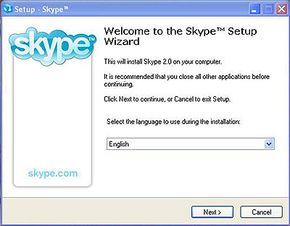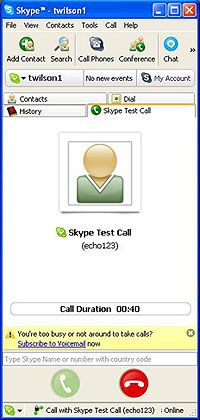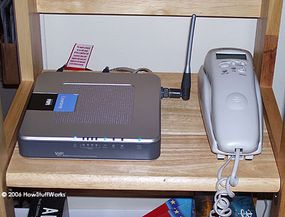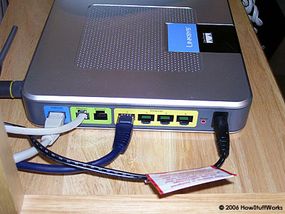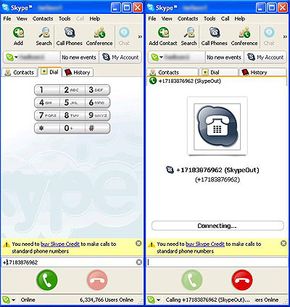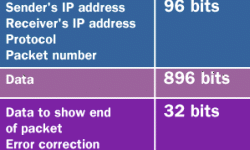In a way, the Internet is a paradox. Getting access to it in your home almost always requires you to spend some money. But once you have that access, you can use the Internet to save money. You can shop around for lower prices on everything from electronics to airline tickets. You can also send e-mail messages, pictures, music and videos without paying for any type of postage. With Voice over IP (VoIP) services, you can make phone calls -- even long distance or international ones -- for free.
Currently, there are several VoIP services on the market. The two most well-known ones are Skype and Vonage. Although both of these services use VoIP technology, they're quite different from one another. In this article, we'll explore how each of these services works, and we'll give you the information you need to decide if one of them is right for you.
Advertisement
Skype and Vonage are similar in that they're both VoIP services. When you make a VoIP call, you use your computer's built-in microphone and speakers, a headset, an IP phone or a phone plugged into an analog telephone adapter in place of an ordinary phone. This equipment and your computer translate the analog signal of your voice into a digital signal. The digital signal travels over the Internet. Once it reaches its destination, the telephone or computer that answers the call translates it back into analog sound. Check out How Voice over IP Works to learn about this process and how it's different from plain old telephone service (POTS).
Voice over IP uses a technique called packet switching to send a call over the Internet.
Skype and Vonage are also similar in that they can be significantly less expensive than traditional phone service. This is especially true if you make a lot of long-distance calls. Depending on how you use it, Skype can even be completely free. But the two services have more differences than similarities, starting with the steps you need to take to open an account.
Advertisement
